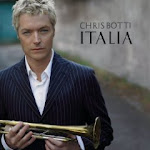Well said. Mr Tony Pua. I wish I had that privilege to do PPE when I was a student.
via Facebook http://ift.tt/2lAGmwG How coincidental! The Guardian runs (another) (ultra-long) story on the Oxford PPE degree. And I get invited back by the Oxford PPE Society (which didn't exist in my time!) to give a talk on the 1MDB scandal which rocked Malaysia next Monday 27/2 evening. The PPE degree - that's Philosophy, Politics and Economics - in Oxford is one of the most enigmatic courses which is either loved or scorned. For me, I absolutely loved it and would not pick any other course, if given a second chance. My 3 years doing PPE was liberating after 6 years of highly intense education at the top secondary school in Singapore. At Oxford, I was nudged into learning how to think, instead of learning what to think. Many critics would argue, and I would agree, that the 'knowledge' I was taught in say, Economics is far less than say a conventional Economics degree at say, National University of Singapore (NUS). That would similarly apply to the subjects of Political Science and Philosophy. In fact, I dare say that my friends in NUS (and most other universities) would have attended more hours of subject lectures in a year, than I did in three. On average, I think I attended just about 2 hours of lectures a week (and my course mates would testify that I was no slouch). On the other hand, we had to pass up 2 essays a week, or 16 essays a term, compared to my friends who dealt with short weekly tutorial questions and perhaps a term essay at other universities. Hence, my time is spent learning how to plough through a weekly reading list which would be physically impossible to complete. You learn how to quickly filter what matters and what aren't relevant. You learn the importance of answering the question posed in the essay instead of regurgitating the knowledge you have gained (copied) from your reading. Of course, along the way, you picked up complete academic independence. Other than the weekly tutorials where course mates will take turn reading/discussing their essays, interrupted occasionally by pointers made by tutors, you are pretty much on your own. If there's a polar opposite of a "spoon-fed" education, this is it. As an example which I always relate to young students wanting to know about the PPE experience. During my very first week College, I received a note from my tutor in my pigeonhole (yes, there were no emails then). The note said that I was to submit an essay titled "Why did the Fourth Republic fail?" the following week, accompanied with a ridiculously long reading list. As with most of you, I had no bloody clue what the hell is "the Fourth Republic" (it's the immediate post-war French govt by-the-way). But by the time I have completed my essay and discussed it in tutorial the following week, I am expected to be examinable in the Fourth Republic for the exams at the end of the year. There was no lecture(s) on the subject during the week which I could take notes to spin an essay. Perhaps conventional Asian parents would even scream "what a waste of money!" at the College for lazy tutors who fail to "teach"! But that's the whole point. While there was certainly 'knowledge' involved, it is not the PPE degree's intent to force-feed A-Z into young bright minds. Instead, you are given space and framework to learn to 'think' and process an information 'overload'. The basic principle is, 'knowledge' can be picked up any time - whether at the University (much of which isn't directly applicable in the working world anyway), or during one's career. However, if one hones his/her sharp thinking skills, then you can process most knowledge that comes your way much better and faster later in life compared to others. That, if anything at all, gave me the big leg up in everything I have pursued since graduation - working in a leading global IT (yes, IT!) consultancy for 2 years, founding, listing and disposing of my own company in the next 10 and joining Malaysian politics in my last 10. I've had friends who were parents who asked, what the hell do you do with a degree like "Philosophy, Politics and Economics"? For them, unless you want to be a politician, Economics was the closest thing to being a useful subject in the course. Philosophy is of course, written off completely. After all, what's the practical purpose of discussing whether the table in front of you right now is real or a figment of your imagination. Again, the questions and assumptions misses the point. Other than certain professional degrees which are intrinsically tied to their profession, like doctors and engineers, practically all other career options do not require a specialised degree, even lawyers (you can do a 1-year law conversion couse in the UK) and accountants. Scores of PPE grads join the banking and investment banking industry earning big bucks on an annual basis. Many more join the biggest corporations in the world from Procter & Gamble to Google to climb up their management ranks. Others become top journalists, analysts and academics. The world is effectively your oyster. How high you climb the corporate ladder or how well you perform in your career would not be limited by the subjects of your PPE course. Instead one would be given a big boost by the data-processing and analytical sharpness which has been honed during the 3 precious years. Ironically, Philosophy, so often looked down upon, would fully train and stretch your brains with the most intensive intellectual stimulation and mental acrobatics, prepping you to take on the most complex problems you might face in the future. The PPE degree isn't for everybody. Don't do PPE if you do not like the subjects or if, for example, Physics or Mathematics is your calling. However, much of the criticisms against the course are misplaced. The course does not tell you to be a free-marketeer or a socialist. Or to be a political liberal or a conservative (PPE has produced top political leaders for both Tories and Labour, and even Lib Dems). The course certainly does not intend to make you immediate subject matter experts - you have to do that yourself. What PPE does, and did for me, is it taught me my life-long skills to "think", gather knowledge and process data speedily, skills which could be applied to all environments which I've found myself in. For those actually interested in the Oxford PPE degree - check out their website here: http://ift.tt/1bAYTLC (I wish they had websites like this then!) http://ift.tt/2l2hPwJ
Subscribe to:
Post Comments (Atom)








No comments:
Post a Comment